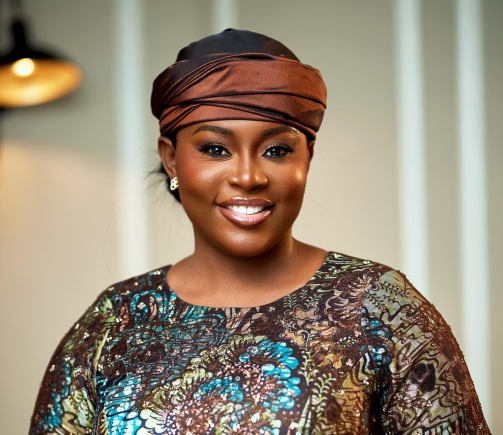In a passionate address to Ghana’s Parliament, Nasira Afrah Gyekye, Member of Parliament for Sekyere Afram Plains, brought the spotlight to the untapped potential of Ghana’s garment industry.
Her speech underscored the industry’s capacity to drive economic growth, empower youth and women, preserve cultural heritage, and position Ghana as a key player in the global fashion market. With a blend of historical reflection, forward-thinking proposals, and a call for collective action, Gyekye’s remarks serve as a clarion call to revitalize a sector that has been sidelined for far too long.
A Legacy in decline
Ghana’s garment industry has deep roots, interwoven with the nation’s cultural identity. Iconic textiles like Kente and Fugu are more than mere fabrics; they are symbols of heritage, artistry, and pride, celebrated both locally and internationally.
Yet, as Gyekye highlighted, the industry’s contribution to Ghana’s GDP has plummeted from 6.5% in the 1970s to a mere 1% today.
The influx of cheap imported clothing, coupled with limited local production capacity, has stifled growth and diminished the sector’s economic significance.
Despite this decline, the MP sees immense potential for revival. With targeted government support, private sector collaboration, and innovative design, Ghana’s garment industry could reclaim its status as a cornerstone of the economy.
The rise of technology, social media, and creative entrepreneurship is already fueling a renaissance in the sector, offering a glimpse of what is possible with the right investments.
A catalyst for socio-economic transformation
Gyekye emphasized that the garment industry aligns seamlessly with the government’s vision of a 24-hour economy.
By enabling continuous production, warehousing, logistics, and export operations, the sector can generate jobs and boost productivity across Ghana’s regions.
Moreover, the industry holds the key to integrating tourism and fashion, creating unique experiences such as Garment Tourism Villages, traditional textile museums, and annual fashion shows.
These initiatives could attract international visitors while celebrating Ghana’s rich cultural heritage.
The MP’s vision extends beyond economics to empowerment. Globally, the garment industry employs millions, particularly women, providing them with skills, entrepreneurship opportunities, and financial independence. In Ghana, strategic investments in training, equipment, and inclusive workspaces could replicate this model, particularly in rural areas like Sekyere Afram Plains, where opportunities are scarce.
Programmes like the National Apprenticeship Program and Adwumawura initiative offer timely platforms to train a skilled workforce, enabling young people to become not just employees but job creators and innovators.
Leveraging competitive advantages
Ghana is uniquely positioned to become a leading hub for garment manufacturing and export in West Africa.
The country boasts skilled labor, proximity to raw materials, and access to the African Continental Free Trade Area (AfCFTA), which opens doors to a vast continental market.
By implementing consistent policies, investing in infrastructure, and strengthening the value chain, Ghana can harness these advantages to compete globally.
Gyekye proposed a bold initiative: establishing a garment factory in each of Ghana’s sixteen
regions.
These factories would serve as more than production centers; they would be hubs for training, empowerment, and innovation.
By decentralizing economic activity, this plan could curb rural-urban migration, foster inclusive development, and create opportunities for communities across the nation.
A national opportunity
The revitalization of Ghana’s garment industry is not just an economic imperative but a cultural and social opportunity. It is a chance to honor the nation’s heritage, empower its youth and women, and showcase the promise of a government committed to inclusive growth.
As Gyekye aptly stated, quoting an Ashanti proverb, “S3 Ghana b3y3 yie aa, 3firi y3n ara” to it Ghana’s success depends on the collective efforts of its citizens.
A call to action
Nasira Afrah Gyekye’s speech is a rallying cry for all stakeholders, government, private sector, development partners, and citizens to unite in resetting Ghana’s garment industry.
By investing in skills development, infrastructure, and innovative partnerships, Ghana can transform its garment sector into a dynamic engine of growth. The time is ripe to weave a new narrative for the industry, one that blends tradition with modernity, empowers communities, and positions Ghana as a global leader in fashion and textile production.
As the John Mahama-Jane Naana Opoku Agyemang administration considers these proposals, the nation stands at a crossroads. With collective effort and bold action, Ghana’s garment industry can rise again, creating jobs, celebrating heritage, and driving the nation toward a prosperous future.
Let us seize this opportunity to make Ghana’s garment industry a beacon of economic and cultural pride.

